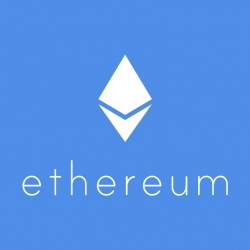
Silicon Valley has been known worldwide as the place to go to get your tech startup funded. Now, a new kind of innovation infrastructure is being built using blockchain technology and, in particular, the Ethereum platform. Unlike San Francisco, it exists in an abstract, non-physical realm that is secure, decentralized, and distributed across the Internet.
Ethereum has all the raw ingredients needed to build startups unconstrained by physical location: a highly liquid medium for value exchange (the Ether currency), a common system for application/business logic (smart contracts), and, most importantly, a culture that encourages and supports innovation.
This is the beginning of the democratization of Silicon Valley’s innovation infrastructure, and it’s happening in an entirely virtual space.
Over the past couple of years, dozens of startups in this new permissionless ecosystem have capitalized their projects by selling their own blockchain-based “tokens” to a globally distributed crowd of early adopters. Tokens are specialized cryptocurrencies that have a utility within a given application. Sometimes it’s an internal currency necessary to pay for the services the application provides, like Brave’s Basic Attention Token (BAT).
Other times it’s a sort of licence that enables a subset of users to do work for the project and earn rewards in exchange, like Augur. These tokens are publicly tradeable and convertible to and from other cryptocurrencies, and their value can go up or down based on market forces. For an Ethereum-based project, selling a token solves two, or, in the best projects, three, problems:
It provides funding for a team’s project.
It bootstraps a community of enthusiasts incentivised to help the application gain traction
It provides a basis for the security of a decentralized economic model.
We are currently seeing enormous enthusiasm for this new paradigm. The most popular Ethereum-based projects are having to go to extreme lengths to prevent their token sales from selling out too quickly. BAT’s $35 million token sale, for instance, sold out in just 25 seconds to just 174 accounts. Status had to make it difficult for people to purchase its tokens in order to prevent its $100 million sale from selling to too few people.
Some regard the token sale phenomenon as Ethereum’s killer app, while others have reservations about how the world’s regulatory bodies will react to these sales.
We are witnessing explosive innovation in a nascent industry, so we can expect token-sale models to mature and adapt to better fit the needs of startups and the increasingly complex token market. But the staggering success of token sales this year has made one thing clear: Ethereum has changed the game for startup funding. The culture of Silicon Valley has found a new habitat on the blockchain, and it contains all the elements needed for tomorrow’s unicorns to evolve from today’s innovative (and sometimes crazy) ideas.
